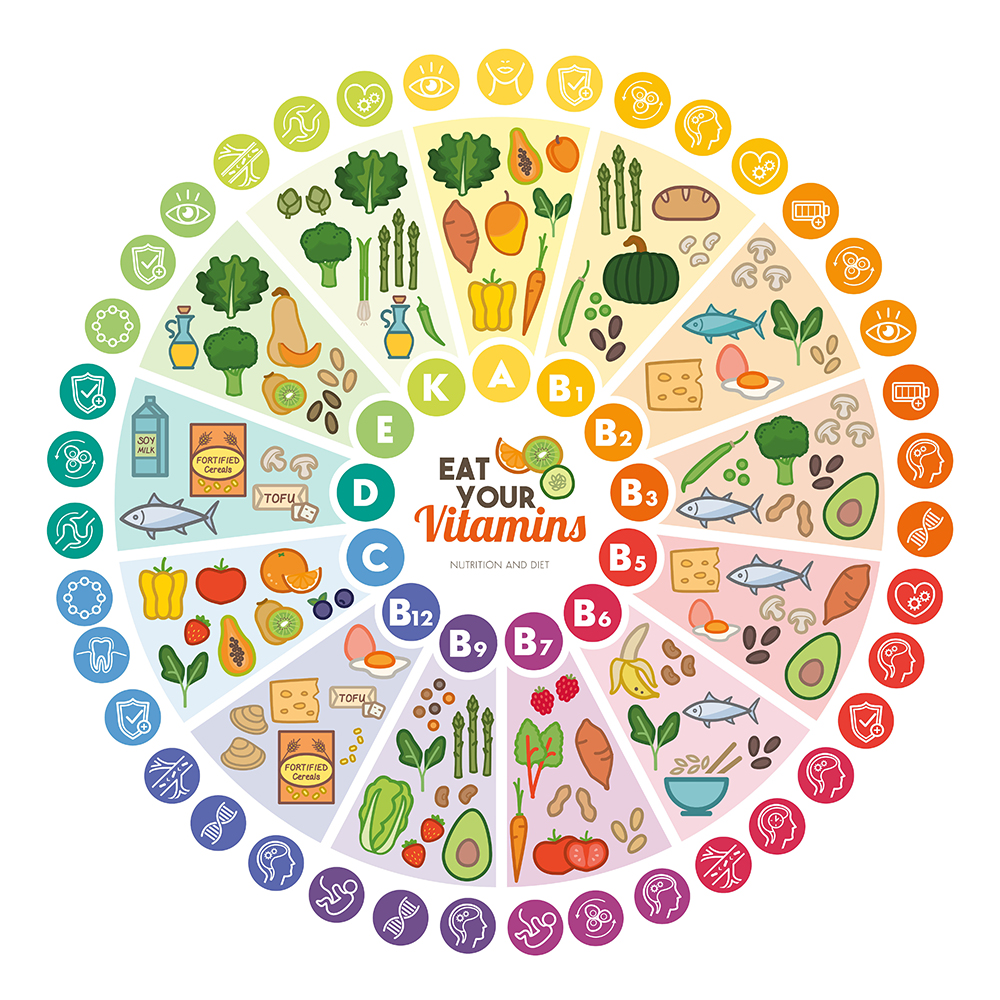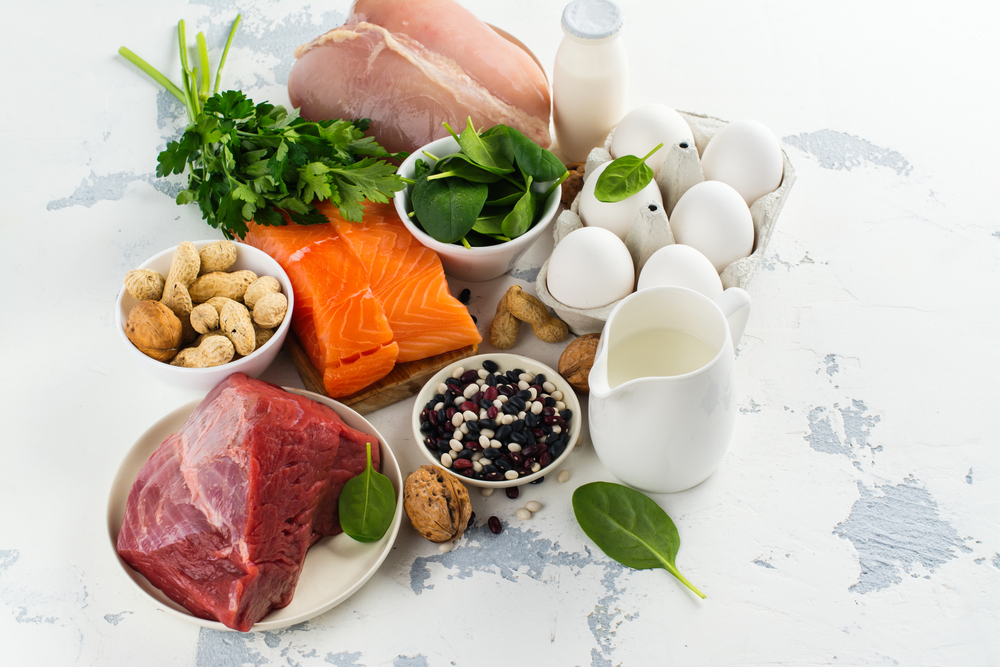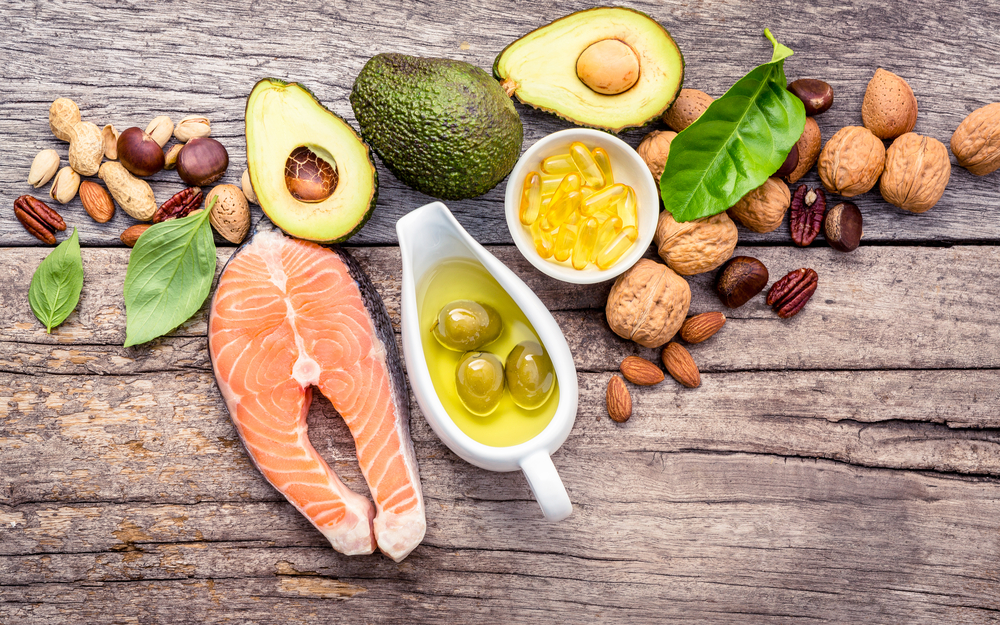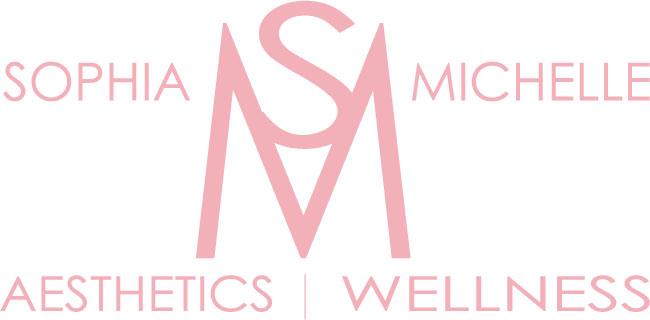
HAIR SPECIFIC NUTRITION
Genetic causes are usually the predominant issue of hair loss sufferers, other factors such as chronic and acute medical conditions, hormonal imbalances, medications, and even certain hair grooming and styling practices can lead to hair thinning, shedding, or balding. Nutrition has always been a key element in hair health, rapid weight loss or long term poor nutrition can make big impacts; sometimes worse than genetic reasons. Diet is critically as important as your shampoo and conditioner. Our goal is for you to learn about all the key players that control your hair follicles ability to grow and reach their healthiest potential.
Our hair is no different than other parts of our body, specific nutrients are required to maintain health. Proteins, vitamins, and minerals combined with a healthy scalp, and adequate blood circulation allow hair follicles to strength, and blossom into strong locks.
Sophia Michelle Aesthetics believes in the power of knowledge in the process of helping restore, and maintain your healthy hair. Please take the time to review the important vitamins that impact your hairs health, and review how you can improve your daily diet to reach your hairs healthiest potential.
Vitamins
Apple Cider Vinegar
1-2 teaspoons before meals will help raise your stomach acid, which will allow you to absorb more vitamins and minerals
Vitamin A
Vitamin A rich foods help the body produce sebum, an oily substance that is required to moisturize and lubricate the skin and hair. Those who are vitamin A deficient may find that they have a dry, itchy scalp.
Recommended Foods: Carrots, green and yellow vegetables, and fruits, pumpkins, sweet potatoes.
The recommended daily amount of Vitamin A is 900-1000 mcg/day or 3000 IU/day. Vitamin A supplementation over the recommended daily amount is sometimes prescribed as a treatment for acne, skin conditions and digestive disorders. Do not take more than the RDA unless recommended by a physician.
B Vitamins
One of the most important, if not the most important vitamin for your hair. Vitamin B is a complex of vitamins including B1, B2, B3, B5, B6, B9, and B12. Your body has a difficult time storing these vitamins. Therefore, your diet needs to rich in Vitamin B. Let’s review each vitamin in the B family, and know that a diet without these vitamins can result in dry, brittle hair, and even a dry, flaky scalp.
B1 (Thiamine)
Think of this vitamin as an Uber driver. B1 helps distribute or pick up the nutrition you ingest and delivers those nutrients to your body, including your hair. Not having sufficient Vitamin B1 will significantly impact your hairs’ ability to grow. Don’t have a day without it! A body depleted from this vitamin can become malnourished, which can lead to poor hair health or even hair loss.
Foods Rich in B1: Asparagus, beets, broccoli, Brussels sprouts, cabbage, eggplant, green beans, mushrooms, peas, spinach.
B2 (Riboflavin)
Vitamin B2 is your scalps best friend. This powerful antioxidant plays a key role in the production of energy. Further, without this vitamin, the body will struggle with the digestion of Vitamin B6. Low levels of Riboflavin directly correlate with a deficiency in B6. Healthy scalps are critical to healthy hair. Find ways to ensure you’re getting plenty.
Foods Rich in B2: Chicken, dairy products, eggs, fish, green leafy vegetables, legumes, nuts, turkey, whole grains.
B3 (Niacin)
Vitamin B3 is another enormous contributor to a healthy scalp. Niacin assists in the ability to enhancing blood, oxygen and nutrient circulation to your scalp. Plus assisting in mechanisms of holding moisture in the scalp.
Foods Rich in B3: Avocado, beef, chicken, fish, mushrooms, peanuts, peas, pork, sunflower seeds, turkey.
B5 (Pantothenic Acid)
Everyone wants to prevent graying or the rate of graying, and have fuller hair. Vitamin B5 has been proven to give hair strength, flexibility, and shine, and reduce graying. The enhancement of follicle strength reduces hair loss and improves the ability of hair to deal with style tension.
Foods Rich in B5: Avocado, beef, broccoli, cauliflower, chicken, corn, duck, egg yolks, kale, legumes, lentil, salmon, sunflower seeds, sweet potatoes, tomatoes, turkey, wheat germ, whole grains.
B6 (Pyridoxine)
Along with vitamin B9 and B12, vitamin B6 is essential to the normal formation of hemoglobin, which carries oxygen to tissues in the body, including the hair. In addition, vitamin B6 supports healthy hair growth because of its role in protein metabolism. Vitamin B6 also ensures that hair cells have access to the amino acids (building blocks of protein) needed to make hair proteins. While more research is needed, there is also some evidence to suggest that vitamin B6 may regulate hair growth because of its effect on hormone activity. By controlling hormone signaling in your body, vitamin B6 may battle hair thinning.
Foods Rich in B6: Bananas, beans, carrots, cheese, chicken, fish, lentils, milk, shrimp, spinach, sunflower seeds, whole grains.
B7 (Biotin)
The controversy on the level of impact Vitamin B7-Biotin has on hair health has been long debated. However, we do know it’s the true impact on reducing hair loss, and the extent of overall follicle strength. The level of impact has been vastly debated, but every researcher can say biotin has a positive impact on hair health.
Biotin is made by the good bacteria in your intestines, which produces more than the daily amount needed for your body. In addition, the average American gets enough intake of biotin from their diet, so there is little risk of biotin deficiency in this country. It is not known if biotin supplements truly make an impact in non-deficient individuals. Even though this information is readily known throughout the medicine, enormous amounts of biotin are consumed every year by patients seeking nutritional supplementation to help with hair and nail growth. Recently, the FDA has warned about Biotin impacting lab readings, and specific warnings have been posted within laboratories about being free from Biotin supplements prior to having your blood drawn.
Foods Rich in B7: Brown rice, eggs, green peas, lentils, nuts, oats, onions, salmon, soybeans, sunflower seeds, sweet potatoes, walnuts.
B9 (Folic Acid)
Vitamin B9 is an important supporter of a hair follicles ability to have cell division, and grow. Everyone needs adequate levels of Folic Acid. A diet rich in the following foods should be able to support healthy growth. I diet depleted of these nutrients should consider supplementation.
Foods Rich in B9: Avocado, beans, beets, citrus fruits (grapefruit, orange), strawberries, green leafy vegetables, lentils, nuts, seeds, whole grains.
B12 (Cobalamin)
A powerhouse building material for support of longer locks. Vitamin B12 is significantly involved in the formation of red blood cells that carry oxygen to the hair cells. Vitamin B12 can be stored, unlike most of its brothers and sisters. However, Vitamin B12 can be more challenging to incorporate sufficiently with diet. Make sure these foods are a part of your regular diet.
Foods Rich in B12: Beef, chicken, dairy products, egg yolks, fish, liver, milk, shellfish.
Vitamin C
Vitamin C or as PA Sophia Michelle likes to call it “Vitamin Collagen” is crucial in the overall strength of the hair shaft and ability to prevent breakage. Cosmetic Medical Grade skin care lines know how important this vitamin is for the stimulation of collagen, and overall health of our skin. This is also for the hair shaft and combined with its support of hair color, and without question needs to be in your healthy hair diet. An important antioxidant that helps in the production of collagen resulting in stronger hair shafts to prevent breakage. In addition, Vitamin C is good for proper circulation, hair growth and hair color.
Foods Rich in Vitamin C: Blackcurrants, blueberries, broccoli, Brussels sprouts, cauliflower, cucumbers, guava, kiwi, lemons, limes, oranges, papaya, strawberries, sweet potatoes, tomatoes.
Vitamin D
Vitamin D is made within your body taking sunlight and forming the vitamin in a natural way. Most people get plenty of vitamin D from regular sun exposure. However, vitamin D deficiency is more likely to occur in people with darker skin, and very little exposure to sunlight, people who cover their skin while outside (sunscreen, long sleeves), countries with less available hours of sunlight, increased age, obesity and pregnancy are all at risk. Supplementation may be needed for a small subset of individuals even with a daily intake of vitamin D containing foods.
Foods Rich in Vitamin D: Dairy products, eggs, fish, mushrooms, tofu, whole grains.
Vitamin E
Vitamin E supports oxygen uptake, and blood circulation, which can nourish damaged hair follicles, and prevent hair breakage.
Foods Rich in Vitamin E: Avocados, dark green vegetables, legumes, nuts, whole grains.

PROTEINS
One of the most important builders of your hair is protein! If it’s missing in your diet, your hair health is significantly impacted. Weak, brittle, dry, and lifeless hair cannot be restored without protein. Extremely low levels of protein can result in major hair loss, which is why rapid weight loss with low protein diets can cause major impacts on the immediate health of your hair.
Recommended foods: Chicken, dairy products, eggs, fish, legumes, nuts, soy, tofu, turkey.
Minerals
Fresh Ground Flax Seed
2 tablespoons daily, fresh ground. Ground flaxseed increases SHBG, which binds excess hormones.
Iron
Iron functions to assist in the transportation of oxygen to the entire body, including your hair. Patients that are iron deficient or anemic can have weak poor quality hair. Commonly patients with this deficiency have other vitamin deficiencies and need nutritional counseling, plus supplements for the short term. Chronic an acute medical illness can cause deficiency and should be evaluated by a medical professional.
Foods Rich in Iron: Beans, chicken, clams, dark leafy vegetables, egg yolks, fish, lentils, mussels, oysters, red meat, turkey, whole grains.
Magnesium
Over 68% of Americans suffer from magnesium deficiency, in recent reports from the American College of Nutrition. Magnesium reduction can result in hair loss and poor quality. Magnesium helps the cells lining of the hair follicle, allowing the follicle to grow, and stay alive.
Foods Rich in Magnesium: Almonds, brown rice, cashews, green leafy veggies, halibut, lentils, spinach, whole grains.
Potassium
All cells need Potassium, including your hair follicle. If there is a deficiency of potassium in the body, hair cells may not work properly, resulting in hair loss.
Foods Rich in Potassium: Acorn squash, avocado, baked potatoes, bananas, beets, dried apricots, green leafy vegetables, lima beans, mushrooms, salmon, sweet potatoes.
Pumpkin Seeds
A great source of zinc and they help prevent testosterone from converting to DHT, which is the form of testosterone that is responsible for male pattern baldness.
Saw Palmetto
This herb also helps prevent the conversion of testosterone to DHT.
Selenium
Selenium encourages new hair growth while preventing or reducing dandruff. The key element for healthy hair.
Foods Rich in Selenium: Brazil nuts, halibut, salmon, sardines, shrimp, tuna.
Zinc
Zinc builds proteins in your hair. It also regulates testosterone and DHT (“hair killer”) and helps maintain the production of oil-secreting glands on the scalp that help your hair grow. A lack of zinc has been shown to lead to hair loss and a dry, flaky scalp.
Foods Rich in Zinc: Beef, eggs, fortified cereals, legumes, mushrooms, oysters, pumpkin seeds, spinach, sunflower seeds, whole grains.

ESSENTIAL FATTY ACIDS
Omega-3 Fatty Acids
Omega-3 fatty acids are essential fats that come from diet alone. Omega-3 fatty acids are found in the cells that line the scalp and provide the oils that keep the scalp well hydrated, promoting healthy hair follicles.
Foods Rich in Omega 3: Brussels sprouts, fish (herring, mackerel, salmon, sardines, trout, tuna), flaxseeds, rapeseed oil, walnuts.
SUPPLEMENT WARNINGS
Adding supplements, you don’t need in excessive amounts can have the opposite effect on your hair, therefore do not purchase hair health-promoting supplements if you are getting your recommended daily intake (RDI) of proteins, vitamins, and minerals from dietary sources. Discuss with your primary care provider your vitamin, protein, and mineral health.
PLASMA RICH PLATELET THERAPY
There are many reasons why an individual suffers from hair loss, however, like nutrients that are obtained in your diet, Plasma Rich Platelets can be used to nourish your hair. Individuals suffering from hair loss are faced with the challenges of understanding why, and how to identify the best therapies. An overwhelming majority of Americans can see dramatic benefits for PRP Therapy, and with a well-designed multifactorial hair health plan, many patients can regain significant amounts of hair loss, and strengthen their current hair. Some individuals get PRP therapy for just an added boost to their already healthy hair; especially when seeking fuller hair, and longer locks. The greatest impact can be seen in those suffering from a recent illness, androgenic (genetic) hair loss, and those interested in a hair health boost.
